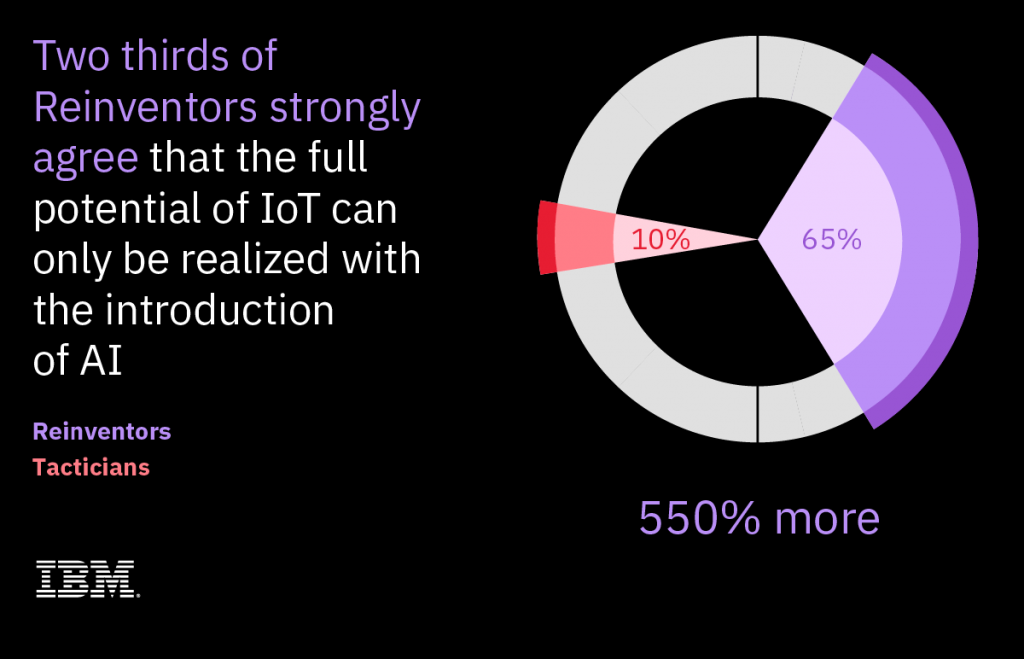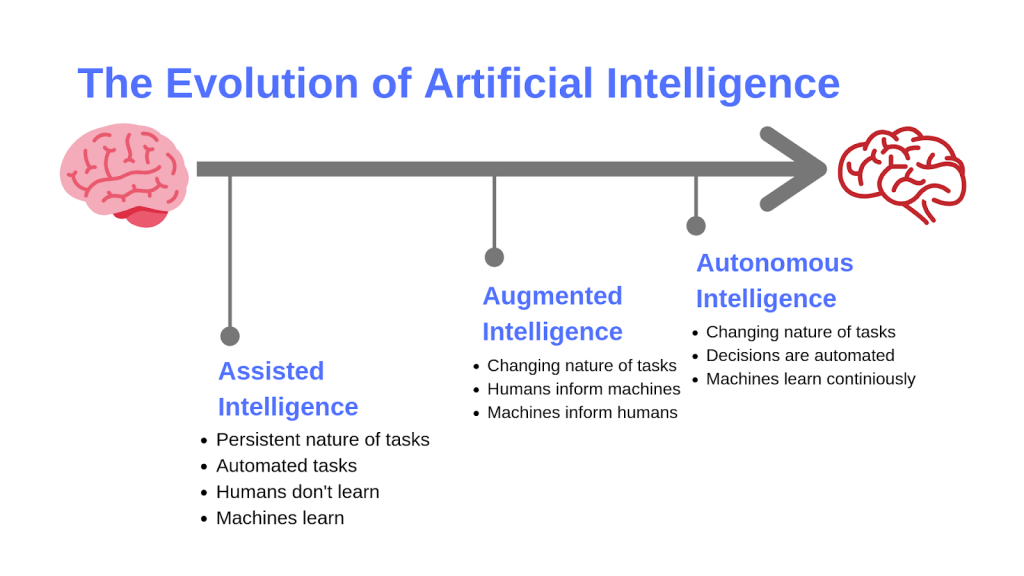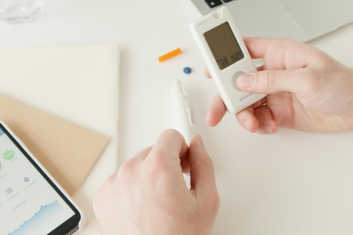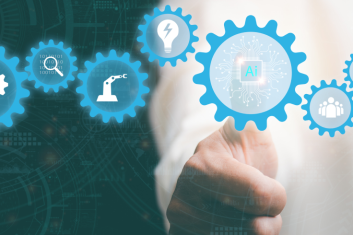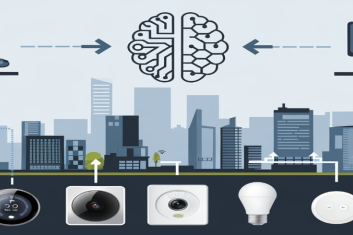When you see the pace at which the Internet of Things is growing, it becomes obvious that the future is now. But the speed of change also presents a problem: the more devices that join the IoT, the more data gets pushed out, and processing all that data gets harder.
So why not let the machine process the data for itself? By implementing Artificial Intelligence into the IoT, we’re doing just that.
IoT and AI Expansion
It’s clear that the Internet of Things is being integrated into more spheres of our lives each year. The International Data Corporation expects IoT spending to reach $1.2 trillion in 2022. The expansion of this particular set of technologies is driven by several factors:
- the decreasing cost of data storage;
- the advent of cloud and fog computing;
- increasing data transmission capabilities;
- the wealth of IoT sector investment.
All of those factors are making the IoT more affordable and appealing to companies looking to optimize production or services. Or to have the world under their reigns.
This is a prime time to be thinking about Artificial Intelligence in relation to the IoT. According to Deloitte, AI adopters in enterprise say they are seeing “moderate” or “substantial” benefits.
Need to develop an IoT + AI solution?
Contact us now and get a free quote.
Aleksandra Golik
Head of Sales
at HQSoftware
According to IBM research, many investors believe that reinventing current business models can only be achieved with the introduction of AI.
Source: IBM
While it is growing exponentially, the Internet of Things faces more challenges than ever before. The more devices that become capable of gathering and transmitting data, the more variable and complex the data gets. Artificial Intelligence can be useful for addressing issues such as:
- managing, analyzing and gathering useful insights from data;
- ensuring fast and accurate data analysis;
- balancing centralized and localized intelligence;
- balancing personalization and data privacy;
- ensuring security.
How Is AI Useful to IoT?
The usefulness of AI technology depends on which of the three stages of its development is being employed: Assisted Intelligence, Augmented Intelligence, and finally — Autonomous Intelligence. At each stage, AI functions differently, providing insights of different complexity.
Three stages of AI evolution
Assisted Intelligence — This is the basic stage of AI development. The technology is able to analyze incoming data and predict possible outcomes. For example, Assisted Intelligence can be used for predictive maintenance: AI can forecast when equipment is likely to fail, and maintenance is conducted based on that information.
Augmented Intelligence — Here, it’s all about prescribed responses. With augmented intelligence, AI-powered devices can not only gather and analyze data but also generate simple responses. Sensors can notify the administrator about possible failures. Vehicles, for example, can correct course when the car veers out of the lane it’s supposed to be in.
Autonomous Intelligence — This is currently the most advanced stage of AI development. Devices in this category can adapt to constantly changing conditions and generate an autonomous response — right, that’s the part where they gain consciousness. For example, advanced healthcare devices can monitor the general condition of the patient and give him or her the necessary injection if that condition changes.
Artificial Intelligence helps IoT devices provide smart responses with the data they gather and analyze, obtain insights humans may not be able to, and become almost completely autonomous.
Where Can the AI-IoT Cocktail Be Best Applied?
There are several spheres where IoT-enabled devices get an AI-boost for increased performance. Let’s review some of them.
Healthcare
Nowadays the healthcare industry generates and gathers tons of data. All sorts of health-related mobile apps, fitness trackers and smartwatches, as well as the more refined technologies for tracking patients’ health, handle much of this process. Artificial Intelligence will allow devices to predict diseases, suggest preventive healthcare, and customize the treatment if needed.
Robots and Collaborative Robots
When it comes to manufacturing, collaborative robots already make use of Deep Learning and Machine Vision to operate efficiently and safely. IoT technologies with AI onboard make the equipment capable of avoiding dangerous situations, predicting damage or crashes, providing maintenance tips, and so on.
Agriculture
Neural networks, AI-based image processing, and deep learning technologies enable various agricultural devices. Robotic equipment, for example, can even be used to plant cuttings in propagation flats almost autonomously. All the robot needs is a “crash course” of a few samples on the conveyer belt; it quickly learns the algorithm and does the planting on his own.
Manufacturing
The integration of AI and IoT in the field of Smart Manufacturing is leading us towards semi-autonomous or autonomous solutions. The technology is used for predictive optimization, predictive analytics, and pro-active maintenance.
Machine Learning is set to inform the administrator about the issues that are likely to occur or have already occurred. Artificial Intelligence allows the equipment to come up with insights that humans tend to miss or aren’t able to grasp.
There is another way Artificial Intelligence makes IoT devices smarter: AI-powered sensors, inductors, and transmitters now can self-calibrate. This feature shortens equipment downtime and helps to prevent failures, lowering overall costs.
Vehicles
Many companies are making tremendous progress in researching and implementing AI in smart vehicles. AI-enabled cars are aware of their surroundings and able to analyze and predict the situation on the road, which helps the vehicle generate an autonomous response. That includes route adjustment, avoiding crashes and other accidents, finding the nearest charging station — the list goes on.
Smart Home
Home automation equipment is already stacked with tech, but there is always room for improvement. IDC predicts the number of smart devices to increase up to 1.3 billion by 2022.
With the help of Artificial Intelligence, smart home devices and sensors can learn the habits, mood, and preferences of the user and adjust their behavior accordingly. For instance, the smart home will be able to use less power by lowering electricity use while the resident isn’t at home. There are safety benefits, too. For example, the equipment can detect whether the stove was left on, and not only notify the resident but also turn the stove off by itself.
Vasil Tarasevich
CTO
at HQSoftwareAI has made its entrance into smart homes with smart assistants. Amazon Alexa and Google Home have proven to be quite useful at performing tasks such as playing music, controlling the lights in the house, even making purchases and requesting deliveries. Artificial Intelligence can also strengthen the security of the smart home, for example by providing advanced face-recognition capabilities. The technology can generate the appropriate response based on who it “sees” at your door: unlock the doors if the visitor is familiar, or alert the owner if the system hasn’t recognized the person. If surveillance cameras identify suspicious behavior, they can notify the owner about a possible intruder. The more usage the AI gets, the better it performs.
The Tech That Runs Other Tech — so You Don’t Have to Worry About Tech
Artificial Intelligence is the way to go when it comes to optimizing the way different spheres of our lives operate. Its capability to analyze data efficiently will help companies conduct business more efficiently, adapt to constantly changing environments, automate generic tasks, and save time and money.
The Internet of Things is already being integrated into numerous fields of business and everyday life, be it agriculture, healthcare, even our homes, and vehicles. Artificial Intelligence will help to free us from mundane routines and focus on making the Internet of Things more and more useful, with fewer drawbacks.
And let’s just hope that it won’t take over us.

HQSoftware Founder
Having founded the company in 2001, uses his broad knowledge to drive the company forward. Ready to share his wisdom on software development and technology insights
Related Posts
View All
We are open to seeing your business needs and determining the best solution. Complete this form, and receive a free personalized proposal from your dedicated manager.

Sergei Vardomatski
Founder


